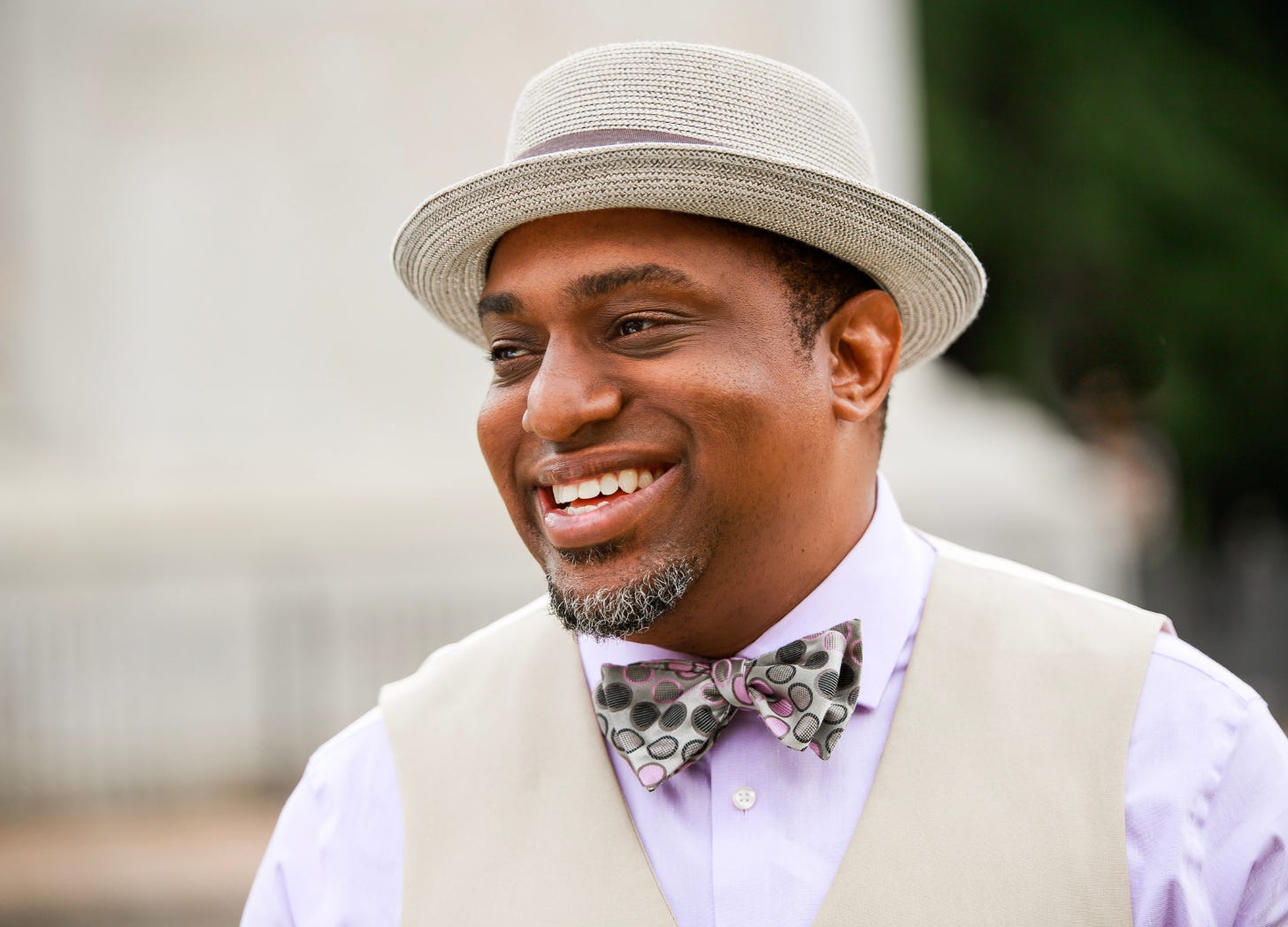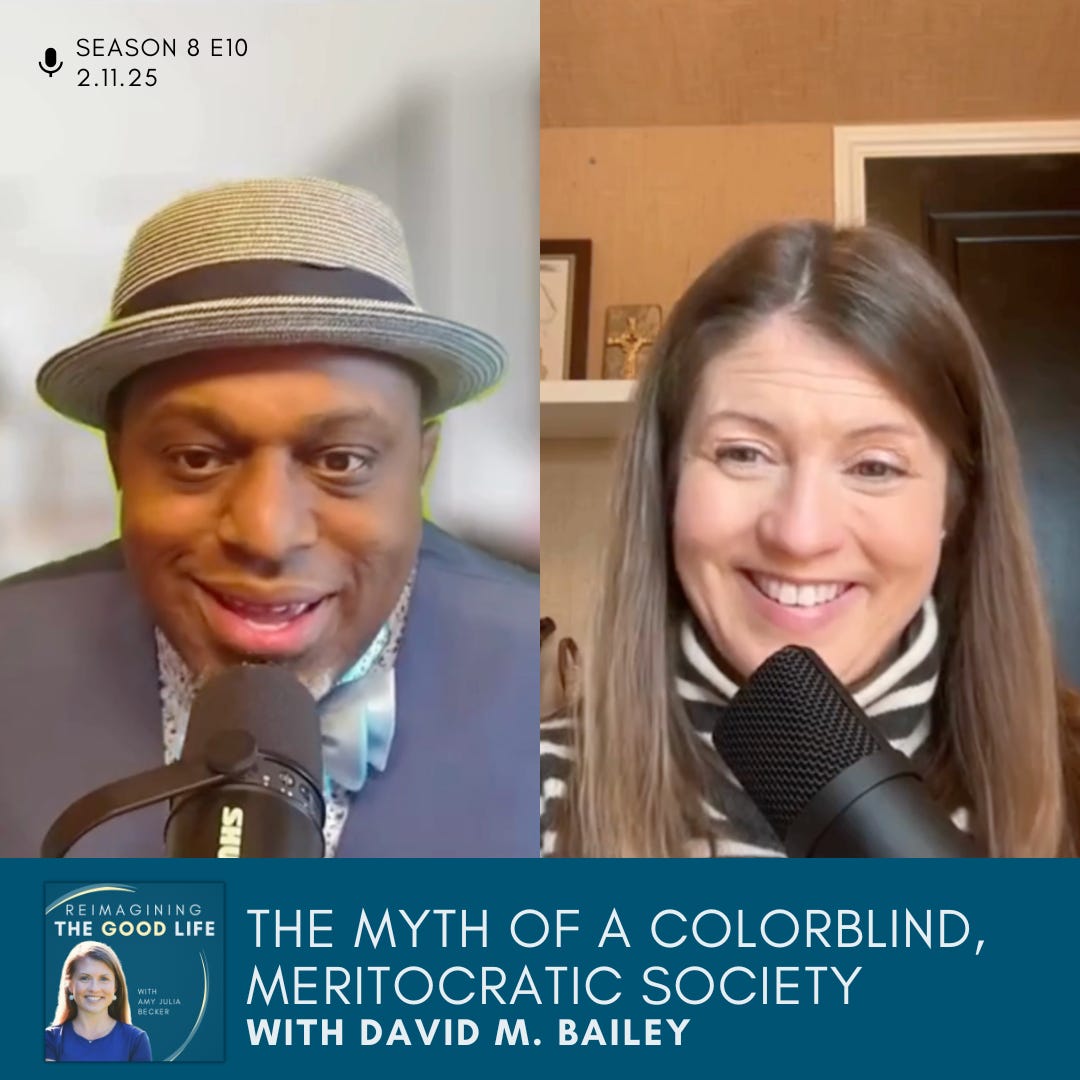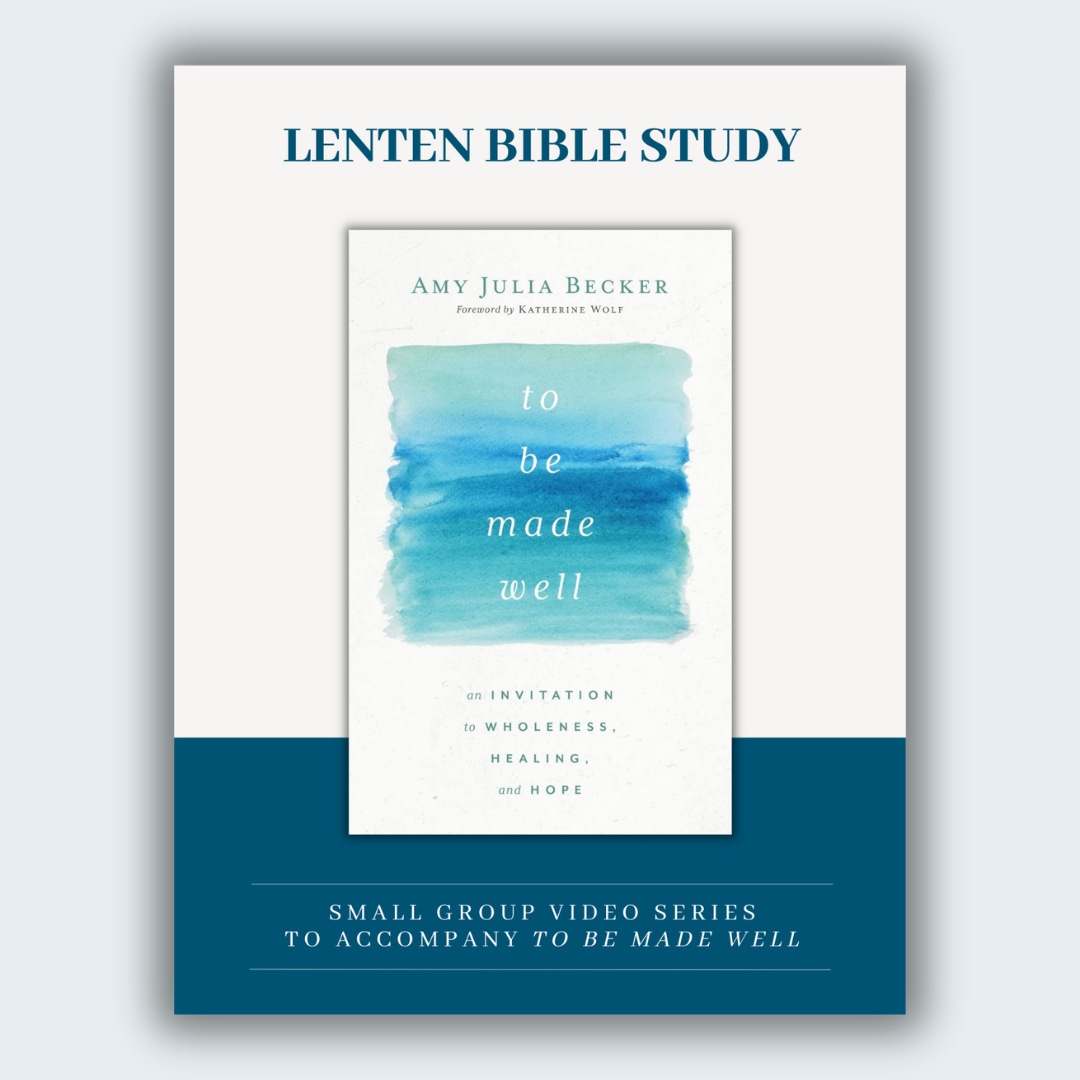I want to start out by saying: The work I do is not about politics, and I’m going to try hard to make sure it doesn’t become about politics. That said, my work, including my podcast and this newsletter, is about Reimagining the Good Life, and, at the start of every episode, I say that we are here to challenge assumptions about what makes life good, proclaim the inherent belovedness of every human being, and envision a world of belonging where everyone matters. So when politicians say or do things that undermine the inherent belovedness and belonging of everyone, or when they challenge the idea that everyone matters, I want to talk about it.
The podcast (and this newsletter) is also not about current events. But the events of recent weeks—both President Trump’s Executive Orders related to diversity, equity, inclusion, and accessibility, and his comments in the wake of the tragic and fatal plane crash in Washington, D.C. a few weeks back1—prompted me to want to talk with David Bailey, a long-time friend of the podcast.2
David M. Bailey is the Founder and CEO of Arrabon, a spiritual formation ministry that equips the American Church to actively and creatively pursue racial healing in their communities. David and I had a great conversation about what it looks like to be faithful to truth and grace in what he calls “peculiar and heartbreaking times.”
We discuss:
the consequences of dismantling DEIA initiatives
the implications of colorblindness and meritocracy
the role of the church in advocating for justice
the importance of maintaining hope and engagement amidst societal polarization
the need for critical thinking and compassion
practical steps for hope and community involvement
As David reflects:
“Meritocracy is a mythology. In a broken, fallen world, that’s just not the way the world works. Let’s not pretend that’s how it is. But when you’re actually kingdom people, because we know the world doesn’t work that way, we’re folks that try to live an interdependent life where we try to bear one another’s burdens.”
I hope you’ll watch or listen to the entire conversation (and please share it!), but I wanted to take time here to focus on some practical advice David offers for stepping forward in faithfulness when we’re tempted to retreat:
Listen on Apple🎙️ | Listen on Spotify🎙️ | Watch on YouTube🎬
Stepping Forward in Faithfulness
Love Without Rationing Generosity – In the parable Jesus tells in Luke 10, the Good Samaritan illustrates love for neighbor by caring for the stranger on the side of the road without judgment for the vulnerable, without questioning worthiness or status, without rationing generosity according to “theological, ethnic, and social taboos.”
Resist Dehumanization as a Political Strategy – Political powers often use fear and division to demonize certain groups, desensitizing us to suffering and distracting from real issues. Refuse to live with a mindset of fear toward “the other and the person that they're demonizing.” As David says:
“Everybody's made in the image of God… It's our job to learn how to pay attention to the suffering of those who are bleeding on the side of the road.”
Engage with Wisdom – The flood of news and information requires that we are both discerning and compassionate. “We need to engage in critical thinking without having a critical spirit.”
Maintain Hope in the Chaos –
Fast from overwhelming media consumption.
For people of faith, feast on God's Word and engage in prayer.
Feast on what is beautiful and brings joy.
Be mindful of anxiety and fear tactics used to manipulate public perception.
Discern what you can do within your sphere of influence and “choose that thing to be faithful in.” A commitment to justice and hope requires long-term endurance.
Thank you for listening (or watching). I’d love to hear what you think—just reply to this email or leave a comment. How are you maintaining hope and engagement amidst our cultural polarization?
Blessings,
Amy Julia
P.S. Keep scrolling for 3 favorites this week—a book and two essays.
To Be Made Well | Lenten Bible Study
Small Group Video Series
In this 8-week series, I walk small groups through a Bible study based on the themes of To Be Made Well: An Invitation to Wholeness, Healing, and Hope and the season of Lent, including:
The Nature of Healing
Barriers to Healing
Personal Healing
Collective Healing
{I also offer a daily Lenten devotional. Learn more here.}
Recent Favorites
Book: A Disability History of the United States by Kim Nielsen.
If you are looking for a book that is exactly what its title suggests, here you go: A Disability History of the United States by Kim Nielsen. This book will stay on my shelf as an engaging, well-written primer on this topic. It left me wanting to learn more about the history of disability within medicine and education.
Essay: Looking for Faith? Here’s a Guide to Choosing a Religion.
I’m looking forward to having Ross Douthat on the podcast in a few weeks to talk about the reasons for faith.
Essay: The Cruel Attack on USAID.
Pete Wehner puts my feelings about the abrupt end to USAID well.
What are some of your recent favorites?
🎙Listen to the podcast Apple | Spotify | YouTube | More
📰 Miss a week? Read past newsletters here.
📧 Questions or feedback? Leave a comment. I read every comment and email reply from you!
If you use a link from here to purchase something I recommend, it sometimes earns me a small commission, which enables me to continue the work I do here. So thank you! (As an Amazon Associate, I earn from qualifying purchases.)
I posted on social media about the damage inflicted by Trump’s baseless, inaccurate, and unjust accusations about who caused the plane crash into the Potomac. You can read that post here.
I think this is David’s 5th time to be on the podcast!







Thanks for sharing the USAID cruelty article (for lack of a better summation title). The Christian lens helped crystallize for me personally why Musk’s and the Trump administration’s entire initiative is so hypocritical and just awful. The evangelicals who support Trump- it’s something I will never understand. Also, I didn’t know the USAID budget is less than 1% of the entire federal budget. Finally, I appreciate your bullets for maintaining hope. And I appreciate that there are people out there like you my friend who are writing about all this and framing it in a way that is digestible and constructive. It is very difficult not to be stressed & depressed about it all, but your work and those of others shared in this space do help alleviate some of the pain we are all experiencing.